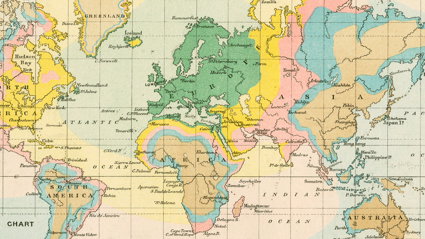
Editing empire
The Hakluyt Society in (post-)imperial Britain, 1846 to the present.
Research by Rosalind Hodgson.
Start: 2025. University of Warwick. PIs Professor David Lambert and Dr Guido van Meersbergen.
Overview
The Hakluyt Society has published hundreds of travel accounts mostly of European colonial 'discovery'. Yet despite its celebration of Elizabethan empire-builders, support for Victorian explorers and connections with the Royal Geographical Society and India Office, it has never been studied in relation to British imperial culture and its public legacies, until now.
Founded in 1846, the history of the Hakluyt Society (pronounced 'hak-loot' or /ˈhæklʊt/) named after Richard Hakluyt, 1553-1616) reveals the intersections of gentlemanly societies, institutions of learning and British colonialism. By publishing primary sources relating to mainly British and European colonial expansion, the Hakluyt Society shaped how the imperial past was remembered.
This project explores how the Hakluyt Society selected, edited and disseminated historical materials, and how these sources and their editorial framing impacted the understanding of travel and travel writing during the expansion, and break up, of the British Empire.
It also examines how the Royal Geographical Society adjusted to changing circumstances in the era of decolonisation. In this way, the project contributes to ongoing conversations within the Hakluyt Society about its institutional past and publishing remit, and broader efforts to ‘decolonise’, and develop more critical understanding of, ‘imperial’ institutions and the continuing significance of the colonial legacies embedded in travel writing and its history.